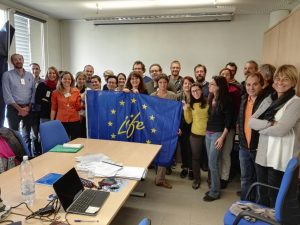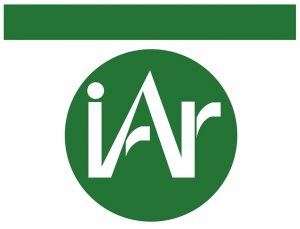Partners
Coordinating Beneficiary
Dep. of Agriculture, food, environment, and forestry (DAGRI), University of Florence (UNIFI)
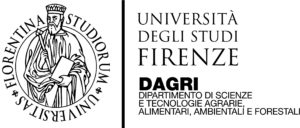 The University of Florence is one of the largest organizations for research and
The University of Florence is one of the largest organizations for research and
higher education in Italy, with over 1900 tenured teaching staff and researchers and over 55 thousand students enrolled. DAGRI owns multidisciplinar competences related to environment, agriculture and agrometeorology sciences. The research unit led by Prof. Marco Bindi is involved in many national and international projects related to agriculture, crop modelling, climate change adaptation and mitigation, agrometeorology. [Learn More]
projects, are mainly concentrated in:
- investigations on relationships between anthropic and natural systems, environment and climate;
- surveys and assessment of agroclimatic parameters affecting plant growth and yield;
- monitoring techniques and design of models for predicting the relation between climatic features and
- agricultural production and distribution;
- assessment of the effects of climate change on vegetation due to green-house effect, ozone layer depletion;
- urban climate monitoring and effect of urban climate on human health;
- Studying, monitoring and automatic processing of agroclimatic factors;
- Research on agricultural and pasture climatic attitudes aiming at their sustainable use;
- Modeling for sustainability impact assessment of land use changes;
- Climatic data series aggregation, processing, validation and interpolation;
- GIS-based studies and modelling of agriculture-climate relationships;
- Development of models, web-sites, web-app;
- Urban climate monitoring: deployment, testing and validation of steady and mobile meteorological sensors.
Contacts:
Marco Bindi: marco.bindi@unifi.it
Giovanni Argenti: giovanni.argenti@unifi.it
Camilla Dibari: camilla.dibari@unifi.it
Nicolina Staglianò: nicolina.stagliano@unifi.it
[Hide]
Associated Beneficiaries
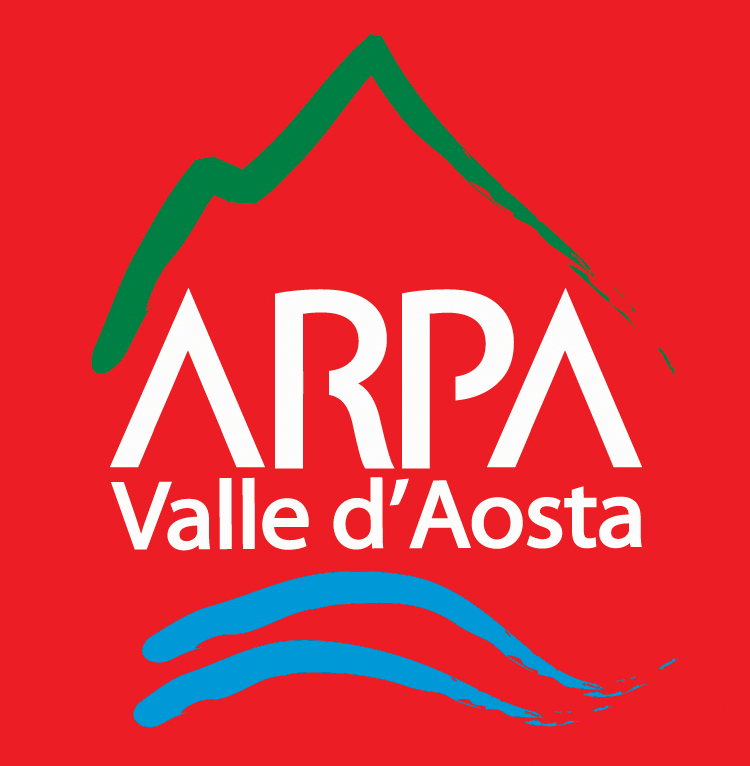 Agenzia Regionale Protezione Ambiente Valle d’Aosta (ARPA VDA)
Agenzia Regionale Protezione Ambiente Valle d’Aosta (ARPA VDA)
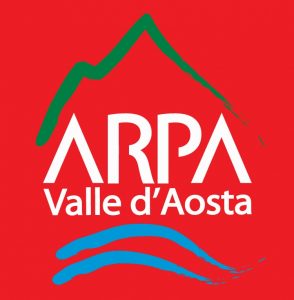
The Environmental Protection Agency of Aosta Valley (ARPA) is an instrumental body of Regione Autonoma Valle d’Aosta, Since its formation (1995), ARPA has various objectives, among which stands the monitoring of the effect of climate change on mountain environments. [Learn More]
ARPA VdA took part to 20 EU-Funded projects, including 10 ALCOTRA, projects 6 Alpine Space projects, 2 Italy-Switzerland project and 1 FP7 project.Contacts:Marta Galvagno: m.galvagno@arpa.vda.it
Gianluca Filippa: gian.filippa@gmail.com
Edoardo Cremonese: e.cremonese@arpa.vda.it
Umberto Morra di Cella: u.morradicella@arpa.vda.it
[Hide]
National Center for Scientific Research (CNRS)
 Founded in 1939 by governmental decree, the CNRS aims to:
Founded in 1939 by governmental decree, the CNRS aims to:
- Evaluate and carry out all research capable of advancing knowledge and bringing social, cultural, and economic benefits for society.
- Contribute to the promotion and application of research results.
- Develop scientific information.
- Support research training.
- Participate in the analysis of the national and international scientific climate and its potential for evolution in order to develop a national policy. [Learn More]
Philippe Choler: philippe.choler@univ-grenoble-alpes.fr
Sandra Lavorelle: sandra.lavorel@univ-grenoble-alpes.fr [Hide]
Institut Agricole Régional (IAR)
In 1982, the Regional Law n. 12 (June 1st 1982) created the foundation called “Institut Agricole Régional”. It was established by the Congregation of Canons Regular of Great Saint Bernard and the Autonomous Region of Aosta Valley, with the aim of carrying out, in Aosta Valley, technical and vocational education and training, as well as agricultural research and experimentation, with regard to the needs of environmental protection of the mountain territory. [Learn More]
- the preservation of regional peculiarities of agriculture and its products to maintain, as well as a high standard, their strong bond with the territory and with local culture;
- the collection and analysis of data on regional agribusiness, in order to have an updated image of strengths and weaknesses of the Aosta Valley agriculture;
- the search for innovative solutions that respect the characteristics of the products and do not break the fragile balance that for centuries has existed between environment and agriculture, which is a mandatory prerequisite to make environmentally sound and sustainable agriculture;
- the promotion of natural resources, biodiversity and Aosta Valley rural culture;
- the preservation of biodiversity and the protection of environmental and landscape richness.
Having a multidisciplinary and applied approach, the Agronomy Department carries out studies on agriculture, sustainability, natural resources, climate change and biodiversity. Its researchers have gained a long experience in international and national projects and their current works are mainly concentrated on:
- classification of alpine vegetation;
- biodiversity and use values of mountain grasslands;
- management plans for protected areas (network Natura 2000);
- sustainability of mountain farming systems;
- habitat restoration;
- studies on invasive alien species in permanent grasslands;
- coping strategies to climatic variability among agropastoralists
Contacts:
Mauro Bassignana: m.bassignana@iaraosta.it
Francesca Madormo: f.madormo@iaraosta.it [Hide]
Institut National de Recherche pour l’Agriculture l’Alimentation et l’Environment (INRAE)

INRAE is France’s new National Research Institute for Agriculture, Food and Environment, created on January 1, 2020. It was formed by the merger of INRA, the National Institute for Agricultural Research, and IRSTEA, the National Research Institute of Science and Technology for the Environment and Agriculture. [Learn More]
The unit of Research Ecodevelopment is a part of the department Sciences for the Action and the Development (SAD) of INRAE. It associates researchers of various disciplines of the social sciences (anthropology, economy, sociology), sciences biotechnics (agronomy, animal breeding) and sciences of the nature (ecology, ethology).
The Joint Research Unit on the Prairie Ecosystem (UREP) studies the agroecology of the grassland ecosystem in the context of global change, including climate change and management practices. The unit has international expertise in the fields of carbon and nitrogen cycles (greenhouse gas balance and carbon sequestration), the assembly of plant communities, biotic interactions (plant-soil – animal) and their consequences on the functioning of grasslands.
IRSTEA conducts its research programs in collaboration with the other research organisations, universities, regional higher education and research centres, competitive clusters and European networks (PEER, Euraqua, Alternet, etc.).
IRSTEA uniquely links researchers and engineers in one scientific approach integrating:
- multiple disciplines: biophysical sciences, computer science, applied mathematics and economic, human and social sciences;
- laboratory or field experiments, on site measurements, theoretical models, technological research and the creation of evaluation models.
Contacts:
Gianni Bellocchi (UREP): gianni.bellocchi@inra.fr
Raphaël Martin (UREP): raphael.martin@inra.fr
Claude Napoleone (Ecodevelopment): claude.napoleone@avignon.inra.fr
Isabelle Arpin (IRSTEA): isabelle.arpin@irstea.fr
[Hide]
Parc National des Ecrins (PNE)
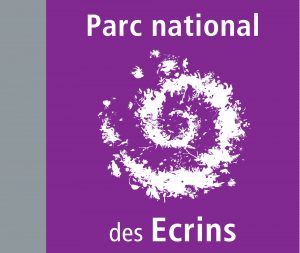 Les Ecrins National Park was created in 1973 in the aim to protect and manage a unique heritage of biological resources, landscapes, cultural value and past traditions. Very large and high area with more than 100 summits, the national park is situated between Grenoble, Briançon and Gap in the south east of France. [Learn More]
Les Ecrins National Park was created in 1973 in the aim to protect and manage a unique heritage of biological resources, landscapes, cultural value and past traditions. Very large and high area with more than 100 summits, the national park is situated between Grenoble, Briançon and Gap in the south east of France. [Learn More]
Through its mission and long term observations, the Ecrins National Park contributes to the environmental surveillance of many ecosystems. Working within many different networks and in
partnerships with various research teams, the park is participating in the development of a better understanding of the important changes taking place.
Contacts:
Richard Bonet: richard.bonet@ecrins-parcnational.fr
Muriel Della Vedova: muriel.dellavedova@ecrins-parcnational.fr
Clotilde Sagot: clotilde.sagot@ecrins-parcnational.fr
Cédric Dentant: cedric.dentant@ecrins-parcnational.fr
Pierre Commenville: pierre.commenville@ecrins-parcnational.fr
Thierry Durand: thierry.durand@ecrins-parcnational.fr
[Hide]
Ente Parco Nazionale Gran Paradiso (PNGP)
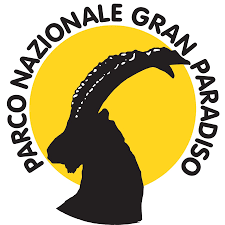 The Gran Paradiso National Park (PNGP), founded in 1922, is a Public body subject to the supervision of the Italian Environmental Ministry and it is the first Italian national Park. PNGP’s mission concerns wildlife and landscape conservation management and planning, environmental protection and social economic promotion of local populations, promotion of sustainable tourism, enhancing and preserving the specific environmental characteristics across the ancient Royal hunting reserve of the Alpine ibex, established in 1856 and in the area inside the boundaries of PNGP ( 720 km2 of Alpine environments, located between 800 and 4061 m a.s.l.). [Learn More]
The Gran Paradiso National Park (PNGP), founded in 1922, is a Public body subject to the supervision of the Italian Environmental Ministry and it is the first Italian national Park. PNGP’s mission concerns wildlife and landscape conservation management and planning, environmental protection and social economic promotion of local populations, promotion of sustainable tourism, enhancing and preserving the specific environmental characteristics across the ancient Royal hunting reserve of the Alpine ibex, established in 1856 and in the area inside the boundaries of PNGP ( 720 km2 of Alpine environments, located between 800 and 4061 m a.s.l.). [Learn More]
The research activities are connected to environmental education, directed at summer visitors, local population and wildlife protection associations. The project’s actions are therefore in consistency and continuity with the initiatives already undertaken by the Park.
Contacts:
Bruno Bassano: bruno.bassano@pngp.it
Ramona Viterbi: ramona.viterbi@pngp.it
Laura Poggio: laura.poggio@pngp.it
Fabiola Casa: fabiola.casa@pngp.it
Cristiana Cerrato: cri.entessa@virgilio.it
[Hide]
